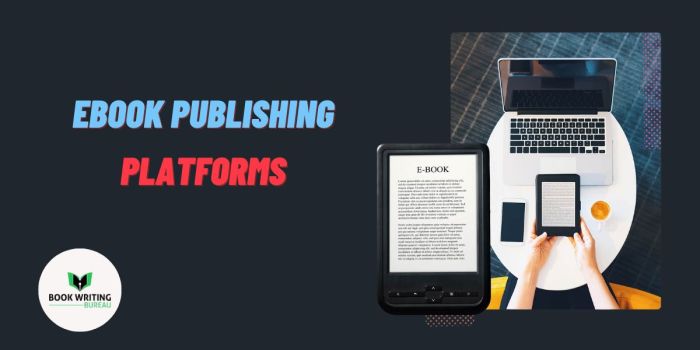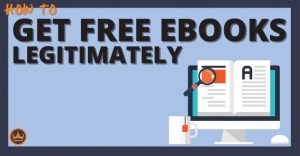
Dive into the world of E-book platforms, where digital reading meets convenience and innovation. Get ready to explore the key features, benefits, and more in this captivating journey!
E-book Platforms

E-book platforms are digital libraries where users can access, purchase, and read electronic books on various devices such as e-readers, tablets, and smartphones. These platforms offer a wide range of e-books across different genres and categories, providing readers with convenient access to a vast selection of reading materials.
Key Features of Popular E-book Platforms
- Large e-book collection: Popular e-book platforms boast extensive libraries with a diverse range of titles, from bestsellers to niche genres.
- User-friendly interface: Easy navigation and intuitive design make it simple for readers to search for, purchase, and read e-books.
- Cross-device synchronization: Many e-book platforms allow users to sync their reading progress across multiple devices, ensuring a seamless reading experience.
- Customizable reading settings: Readers can adjust font size, background color, and other settings to personalize their reading experience.
- Recommendation algorithms: E-book platforms often use algorithms to suggest books based on users’ reading preferences, helping readers discover new titles.
Comparison of E-book Platforms
| Platform | User Interface | Available Features |
|---|---|---|
| Amazon Kindle | Intuitive and user-friendly | Extensive e-book collection, Kindle Unlimited subscription, X-Ray feature |
| Apple Books | Sleek and visually appealing | Integration with Apple devices, audiobook support, Night theme |
| Google Play Books | Simple and clean layout | Cloud storage, audiobook integration, personalized recommendations |
Benefits of Using E-book Platforms
- Convenience: E-book platforms allow readers to carry thousands of books in a single device, making reading on the go effortless.
- Cost-effective: E-books are generally cheaper than physical books, and platforms often offer discounts and promotions.
- Accessibility: E-book platforms enable users to access books instantly, without the need to visit a physical bookstore or wait for shipping.
- Publishing opportunities: For authors, e-book platforms provide a platform to self-publish their work and reach a global audience without traditional publishing barriers.
E-BOOKS

E-books, short for electronic books, are digital versions of printed books that can be read on various electronic devices such as e-readers, smartphones, tablets, and computers. They differ from traditional printed books in the sense that they do not require physical storage space and can be easily accessed and carried around in a compact device.
Advantages of E-books
- E-books are easily portable and convenient to carry around, especially when traveling.
- They offer adjustable font sizes and styles, making reading more comfortable for individuals with visual impairments.
- E-books are often cheaper than physical books, saving costs for both publishers and readers.
- E-books can be instantly downloaded and accessed, eliminating the need to wait for shipping or visit a physical bookstore.
Evolution of E-books and Impact on Publishing Industry
The evolution of e-books has transformed the publishing industry significantly. Publishers now have the opportunity to reach a global audience without the constraints of physical distribution. E-books have also opened up avenues for self-publishing, allowing authors to publish their work independently. This digital shift has led to changes in marketing strategies, distribution channels, and reader preferences.
Formats of E-books
- EPUB: A widely used format that is compatible with most e-readers and devices.
- PDF: Portable Document Format that preserves the layout of the book, suitable for textbooks and documents.
- MOBI: Developed by Amazon for Kindle devices, offering a user-friendly reading experience.
- AZW: Amazon’s proprietary format for Kindle e-books, optimized for their devices.
Ultimate Conclusion
As we wrap up our exploration of E-book platforms, remember that the future of reading is at your fingertips. Embrace the digital age and enjoy the endless possibilities that these platforms offer.
User Queries
What are e-book platforms?
E-book platforms are digital services that allow users to access, download, and read electronic books on various devices.
How do e-books differ from traditional printed books?
E-books are electronic versions of books that can be read on digital devices, while traditional printed books are physical copies made of paper and ink.
What are the advantages of using e-books over physical books?
E-books offer convenience, portability, and accessibility with features like adjustable text size and search functions.
How have e-books impacted the publishing industry?
E-books have transformed the publishing landscape by providing new avenues for authors to reach readers and changing the way content is consumed.
What formats are e-books available in?
E-books are available in various formats such as EPUB, PDF, MOBI, and AZW, catering to different devices and reading preferences.






